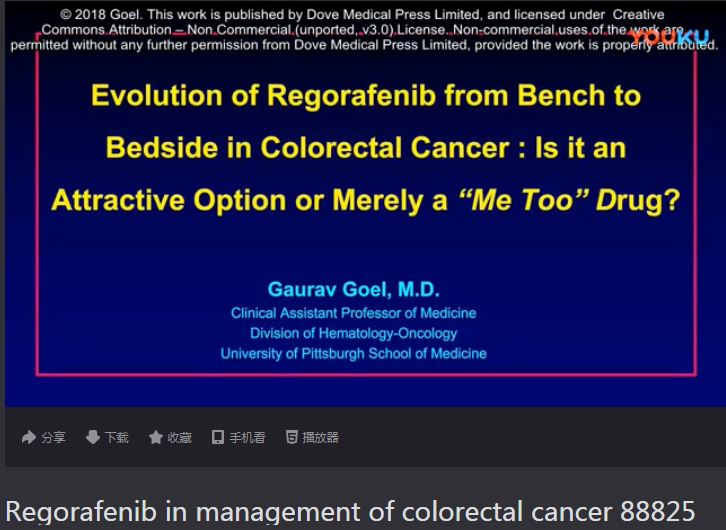9 0 5 7 8
论文已发表
注册即可获取德孚的最新动态
IF 收录期刊
- 2.6 Breast Cancer (Dove Med Press)
- 3.9 Clin Epidemiol
- 3.3 Cancer Manag Res
- 3.9 Infect Drug Resist
- 3.6 Clin Interv Aging
- 4.8 Drug Des Dev Ther
- 2.8 Int J Chronic Obstr
- 8.0 Int J Nanomed
- 2.3 Int J Women's Health
- 3.2 Neuropsych Dis Treat
- 4.0 OncoTargets Ther
- 2.2 Patient Prefer Adher
- 2.8 Ther Clin Risk Manag
- 2.7 J Pain Res
- 3.3 Diabet Metab Synd Ob
- 4.3 Psychol Res Behav Ma
- 3.4 Nat Sci Sleep
- 1.9 Pharmgenomics Pers Med
- 3.5 Risk Manag Healthc Policy
- 4.5 J Inflamm Res
- 2.3 Int J Gen Med
- 4.1 J Hepatocell Carcinoma
- 3.2 J Asthma Allergy
- 2.3 Clin Cosmet Investig Dermatol
- 3.3 J Multidiscip Healthc

Evolution of regorafenib from bench to bedside in colorectal cancer: Is it an attractive option or merely a “me too” drug?
Authors Goel G
Received 18 September 2017
Accepted for publication 23 December 2017
Published 6 March 2018 Volume 2018:10 Pages 425—437
DOI https://doi.org/10.2147/CMAR.S88825
Checked for plagiarism Yes
Review by Single-blind
Peer reviewers approved by Dr Amy Norman
Peer reviewer comments 2
Editor who approved publication: Dr Antonella D'Anneo
Abstract: Colorectal cancer (CRC) is a major public health problem in the United
States with an estimated 50,260 deaths in 2017. Over the past two decades,
several agents have been approved by the US Food and Drug Administration (FDA)
for the treatment of patients with metastatic CRC (mCRC). Regorafenib (BAY
73-4506) is a small-molecule multikinase inhibitor that was approved for the
treatment of mCRC in 2012. This agent is a novel oral diphenylurea-based
multikinase inhibitor that is active against several angiogenic receptor
tyrosine kinases (RTKs; VEGFR-1, VEGFR-2, VEGFR-3, TIE-2), oncogenic RTKs
(c-KIT, RET), stromal RTKs (PDGFR-B, FGFR-1), and intracellular signaling
kinases (c-RAF/RAF-1, BRAF, BRAFV600E).
Preclinical studies have documented its broad-spectrum activity against
different solid tumor types including CRC. Phase I studies showed that it had
an acceptable safety profile in advanced refractory mCRC. A subsequent Phase
III trial (CORRECT) demonstrated significant clinical efficacy of regorafenib
in patients with refractory or advanced mCRC, which eventually led to its FDA
approval for the treatment of mCRC in September 2012. However, the drug was
associated with significant toxicity in clinical practice when administered at
the approved doses, which necessitated a thorough reassessment of its dosing
schedule and toxicity profile. This review summarizes the development of
regorafenib from the initial preclinical studies to the Phase III trials and critically
examines the current clinical space occupied by regorafenib in the treatment of
mCRC, at 5 years after its initial FDA approval.
Keywords: regorafenib,
multikinase inhibitor, angiogenesis, colorectal cancer, colon cancer, stivarga,
BAY 73-4506
摘要视频链接:Regorafenib in management of
colorectal cancer
